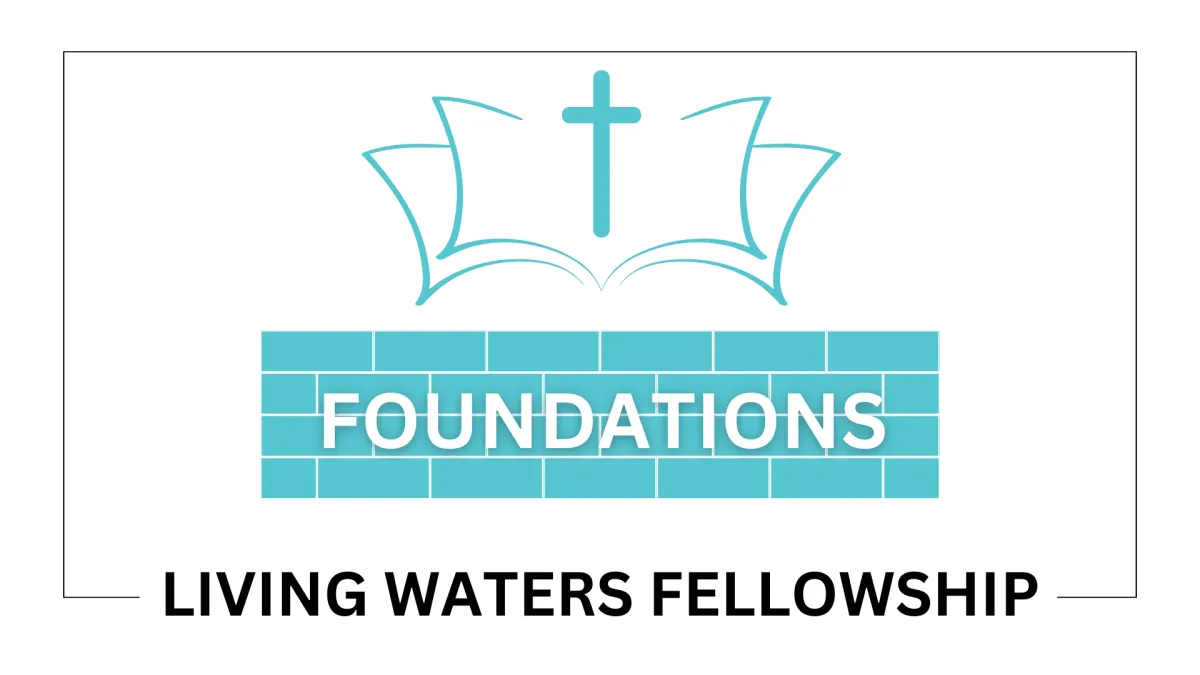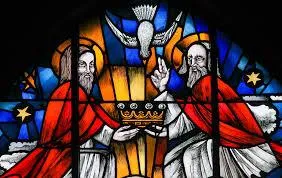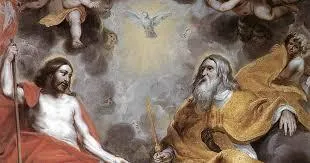I. Introduction to Christian Faith
i. Overview of the statement of faith
ii. What is biblical faith?
iii. The importance of faith in the Christian life
II. The Authority of the Bible
i. The inspiration and inerrancy of Scripture
ii. The role of the Bible in Christian faith and practice
iii. Principles of biblical interpretation
III. The Tri-unity of the Godhead
i. The nature of God as three-in-one
ii. The Father, Son, and Holy Spirit in Scripture
iii. Implications of the Trinity for faith and practice
IV. Creation, Fall, and Redemption
i. The biblical account of creation, fall, and redemption
ii. The sinfulness of humanity and our need for a savior
iii. The work of Christ on the cross and our salvation
V. The Person and Work of Jesus Christ
i. The deity and humanity of Christ
ii. The virgin birth and the life of Christ
iii. The death, burial, and resurrection of Christ
VI. The Gospel of the Grace of God
i. The message of the gospel
ii. The importance of the death, burial, and resurrection
iii. The implications of the gospel for our lives
VII. The Salvation of Sinners
VIII. The Second Coming of Christ
i. Christ's bodily ascension and heavenly enthronement
ii. The second coming and the resurrection of the dead
iii. The implications of the second coming of Christ
X. Pursuing Personal Holiness
i. The importance of personal holiness
ii. The role of discipline and self-control
iii. Sexual immorality and the honor of marriage
i. The nature of salvation
ii. The role of faith in salvation
iii. The assurance of salvation
VII. The Salvation of Sinners
i. The nature of salvation
ii. The role of faith in salvation
iii. The assurance of salvation
IX. Baptism and the Holy Spirit
i. The importance of water baptism by immersion
ii. The baptism of the Holy Spirit and tongues
iii. The gifts of the Spirit and their role in the church
XI. Divine Healing and the Lord's Supper
i. The nature of divine healing
ii. The prayer of faith
iii. The importance of the Lord's Supper for believers
XII. Eternal Life and Eternal Punishment
i. The reality of eternal life for believers
ii. The reality of eternal punishment for unbelievers
iii. The implications of eternal life and eternal punishment for Christian faith and practice




III. The Tri-unity of the Godhead
2. The Tri-unity of the Godhead. (Matthew 28:19, Galatians 3:20, 1 John 5:7).
Living Waters Fellowship FCA Statement of Faith

i. The Nature of God as Three-in-One
tri·une
adjective
consisting of three in one (used especially with reference to the Trinity).
"the triune Godhead"
i. The nature of God as three-in-one
Deuteronomy 6:4: "Hear, O Israel: The LORD our God, the LORD is one." (Also quoted by Jesus un Mark 12) and
2 Corinthians 13:14: "May the grace of the Lord Jesus Christ, and the love of God, and the fellowship of the Holy Spirit be with you all."
God is revealed in the bible as one God (monotheism), and yet his word clearly teaches that the Father, Son and Holy Spirit are distinct persons who constitute this one God. This known as the doctrine of the Trinity, and it is the belief that there is one God who exists eternally in three persons: the Father, the Son, and the Holy Spirit.
The phrase "Let us make man in our own image" from Genesis 1:26 is often cited as evidence for the doctrine of the Trinity, as it suggests that God is a plurality of persons. The use of the plural pronoun "us" seems to indicate that more than one person is involved in the act of creation. The Hebrew word Elohim used to refer to God in this passage is a plural noun.
One of the most significant Scriptures that reference the Trinity is found in the Great Commission that Jesus gave His disciples before ascending to heaven: "Therefore go and make disciples of all nations, baptizing them in the name of the Father and of the Son and of the Holy Spirit" (Matthew 28:19). In this verse, Jesus instructs His followers to baptize in the name of the Father, the Son, and the Holy Spirit, indicating that all three are of equal divine importance.
Another Scripture that supports the Trinity is found in 2 Corinthians 13:14: "May the grace of the Lord Jesus Christ, and the love of God, and the fellowship of the Holy Spirit be with you all." This verse expresses the three persons of the Trinity as distinct, yet united in purpose and essence.
The doctrine of the Trinity is also illustrated in the baptism of Jesus, where the Father speaks from heaven, the Son is baptized, and the Holy Spirit descends like a dove (Matthew 3:16-17). In this event, we see all three persons of the Trinity present and active.
The Trinity is essential in the Christian faith because it shows the unity and diversity of God. God is one, yet He exists as three distinct persons. This truth also highlights the love and relationship between the Father, Son, and Holy Spirit, and it models the type of unity and relationship that we should strive for in our own lives and communities.

ii. The Father, Son, and Holy Spirit in Scripture
Matthew 3:16
“After being baptized, Jesus came up immediately from the water; and behold, the heavens were opened, and he saw the Spirit of God descending as a dove and lighting on Him.”
Scripture references that reveal the distinct persons of the Father, Son, and Holy Spirit.
The Father
Genesis 1:1 - The Father is the creator of the heavens and the earth
Psalm 103:13 - The Father is a compassionate Father to his children
John 3:16 - The Father sent his only Son to save the world
Ephesians 1:3-6 - The Father chose us in Christ before the foundation of the world
The Son
John 1:1-3 - The Son was with God in the beginning, and through him all things were made
Colossians 1:15-20 - The Son is the image of the invisible God, the firstborn over all creation, and the head of the church
Hebrews 1:1-4 - The Son is the radiance of God's glory and the exact representation of his being, and he upholds all things by his powerful word
John 14:6 - The Son is the way, the truth, and the life, and no one comes to the Father except through him
The Holy Spirit
Genesis 1:2 - The Holy Spirit was present at the creation of the world
Isaiah 11:2 - The Holy Spirit is the Spirit of wisdom and understanding, counsel and might, knowledge and fear of the Lord
John 14:16-17 - The Holy Spirit is the Advocate or Helper whom Jesus sends to be with his disciples forever
Acts 1:8 - The Holy Spirit empowers believers to be witnesses for Christ to the ends of the earth

iii. Implications of the Trinity for Faith and Practice
The word trinity is not found in the bible, but the doctrine of the Trinity is clearly taught in Scripture. Though it is difficult, if not impossible to understand, it has significant implications for faith and practice in the church and the Christian life. Here are some of the ways in which the Trinity impacts our faith and practice:
Worship: Because God is three-in-one, our worship must reflect this reality. We worship the Father, Son, and Holy Spirit as distinct persons of the one Godhead. This is reflected in the ancient Christian practice of doxology, which gives glory to the Father, Son, and Holy Spirit.
Salvation: The doctrine of the Trinity is intimately connected to our salvation. The Father sends the Son to save us, and the Holy Spirit applies the work of Christ to our hearts. Each person of the Trinity plays a distinct role in our salvation.
Prayer: Our prayers are addressed to the Father, through the Son, in the power of the Holy Spirit. We have access to the Father through Christ and by the Spirit.
Community: The Trinity provides a model for community. Just as the three persons of the Trinity are distinct yet united, so the church is made up of diverse members who are united in Christ. We are called to love one another as Christ has loved us.
Holiness: The doctrine of the Trinity calls us to holiness. We are called to reflect the character of the triune God in our lives. This means living in love, unity, and selflessness, just as the Father, Son, and Holy Spirit are united in perfect love.